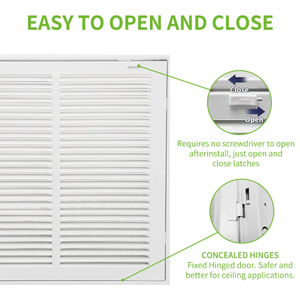
All categories
Featured selections
Trade Assurance
Buyer Central
Help Center
Get the app
Become a supplier

(21387 products available)














compressed line air filters are essential components in the realm of industrial machinery, particularly within the domain of compressors. These parts are designed to ensure the efficient operation and longevity of industrial compressors, which are used in various applications ranging from manufacturing to energy production. compressed line air filters encompass a wide array of items, including valves, gaskets, filters, and bearings, each playing a crucial role in maintaining the compressor's functionality and performance. The quality and compatibility of these parts are vital for the seamless operation of compressors, preventing downtime and enhancing productivity in industrial settings. As technological advancements continue, the demand for high-performance compressed line air filters grows, driving innovation in materials and design.
The variety of compressed line air filters available caters to different compressor models and applications, ensuring that each component meets specific operational requirements. Common types include inlet and exhaust valves, which regulate the flow of air and gas through the compressor, and seals and gaskets, which prevent leaks and ensure airtight operation. Bearings and shafts are crucial for the mechanical movement within the compressor, reducing friction and wear over time. Filters and separators are used to remove contaminants from the air or gas being compressed, ensuring purity and preventing damage to internal components. Each type of compressed line air filters is engineered to withstand the demanding conditions of industrial environments, contributing to the reliability and efficiency of the compressor.
compressed line air filters offer a range of functionalities that are indispensable to the operation of industrial compressors. Valves control the intake and exhaust of compressed air, ensuring optimal pressure levels and efficient operation. Seals and gaskets maintain the integrity of the compressor by preventing leaks, which can lead to pressure loss and reduced efficiency. Bearings and shafts facilitate smooth mechanical movement, minimizing wear and extending the lifespan of the compressor. Filters and separators play a critical role in maintaining the purity of compressed air, protecting internal components from contamination and damage. The durability and precision of compressed line air filters are crucial for maintaining the compressor's performance and minimizing maintenance needs.
The production of compressed line air filters involves the use of various materials, each selected for its specific properties to enhance performance and longevity. Metals such as steel and aluminum are commonly used for their strength and resistance to wear, making them ideal for components like shafts and bearings. Rubber and synthetic materials are used for seals and gaskets, offering flexibility and airtight sealing capabilities. Advanced polymers and composites are increasingly being used in the manufacture of filters and separators, providing durability and resistance to chemical corrosion. The choice of materials for compressed line air filters is critical in ensuring compatibility with the compressor and its operational environment, allowing manufacturers to tailor parts to specific applications.
Proper maintenance and timely replacement of compressed line air filters are essential for ensuring the longevity and efficiency of industrial compressors. Regular inspection of components such as valves, seals, and bearings can prevent unexpected failures and costly downtime. Lubrication of moving parts is crucial to reduce friction and wear, extending the lifespan of the compressor. Replacing filters and separators at recommended intervals is important to maintain air purity and prevent contamination. It is essential to select compatible compressed line air filters during replacement to ensure seamless integration and optimal performance. Implementing a proactive maintenance schedule can significantly enhance the reliability and productivity of industrial compressors, minimizing disruptions in operations.
When selecting compressed line air filters, it is essential to consider the specific requirements of your industrial compressor setup. Compatibility with your existing compressor model is crucial to ensure optimal performance and avoid operational disruptions. It's important to verify the specifications of the compressed line air filters against the manufacturer's guidelines, paying attention to dimensions, material properties, and operational limits. Additionally, consulting with technical experts or engineers can provide valuable insights into the most suitable options for your application, ensuring the compressed line air filters enhances the efficiency and reliability of your compressor.
With increasing emphasis on sustainability, choosing compressed line air filters that aligns with environmental goals is becoming more vital. Many manufacturers are now offering parts made from eco-friendly materials and processes, reducing the carbon footprint associated with production and use. When selecting compressed line air filters, consider options that offer recyclability or are made from renewable resources. These choices not only contribute to environmental preservation but can also align with corporate sustainability initiatives. Evaluating the lifecycle impact of compressed line air filters can help in making informed decisions that benefit both the business and the planet.
Key factors include compatibility with the compressor, material durability, and operational efficiency. It's also important to consider the manufacturer's reputation and the availability of technical support for the chosen compressed line air filters.
The replacement frequency depends on the usage conditions and the specific part involved. Regular maintenance checks can help determine when compressed line air filters need replacement to prevent unexpected failures.
Yes, many manufacturers offer compressed line air filters made from recyclable or renewable materials, contributing to reduced environmental impact and aligning with sustainability goals.
Customization is often possible, allowing compressed line air filters to be tailored to specific operational requirements and conditions. This can enhance performance and ensure a better fit with the existing compressor setup.
Challenges include ensuring compatibility during replacements, managing wear and tear, and sourcing high-quality parts. Regular inspections and proactive maintenance can mitigate these issues and maintain compressor efficiency.